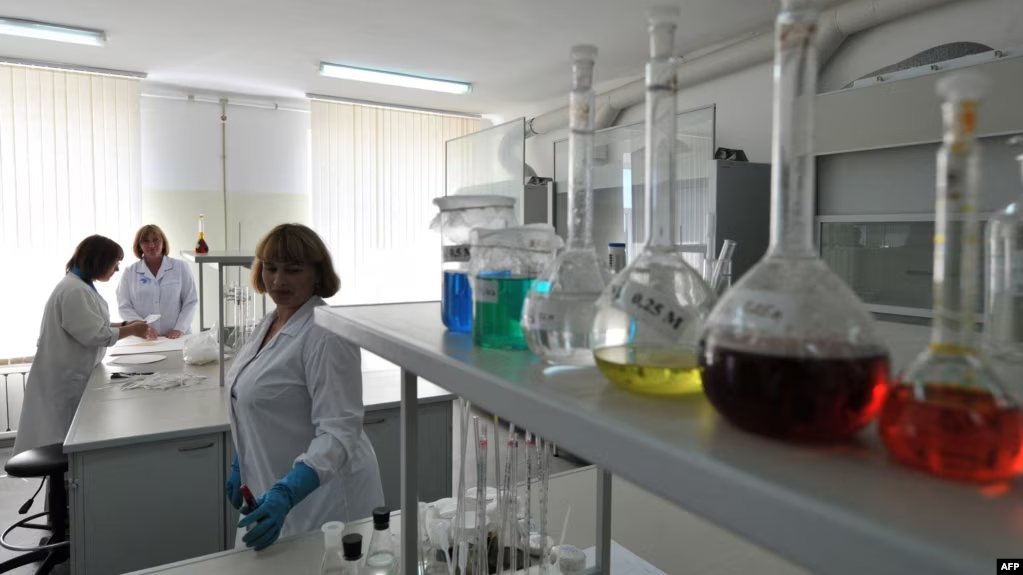In recent weeks, Russian media outlets have continued to spread disinformation about Kazakhstan’s collaboration with the United States, particularly regarding the alleged development of military biological weapons. Despite the US’s ongoing efforts to improve relations with Russia under former President Donald Trump’s administration, this narrative remains active in Russian news outlets, including Telegram channels supporting the war in Ukraine.
The accusations, which paint Kazakhstan as involved in questionable scientific research with the US, have resurfaced. According to these reports, Kazakhstan is accused of hosting biological laboratories in cooperation with the US, where research into military biological weapons is allegedly being conducted. However, these claims have been widely debunked, and the Kazakh government has not publicly responded to these ongoing allegations.
A History of False Claims
This isn’t the first time Kazakhstan has been the target of such accusations. Several years ago, Russian sources also claimed that Kazakhstan harbored secret US-owned laboratories, where research into chemical and biological weapons was supposedly carried out. However, the facts surrounding these claims point to a different reality.
Kazakhstan and the US have long had a partnership focused on nuclear and biological security, particularly in the wake of the Soviet Union’s collapse. One of the key projects in this cooperation is the establishment of the Central Reference Laboratory in Kazakhstan, a facility that studies extremely dangerous infections. This laboratory has attracted specialists from around the world, including the US and European countries, to conduct medical and biological research, not military weaponization.
The Nunn-Lugar Program: A Vital Contribution to Safety
The Central Reference Laboratory, part of the broader Nunn-Lugar Program, is primarily focused on mitigating the risks posed by biological and nuclear weapons left over from the Soviet era. The Nunn-Lugar Program, backed by the US Department of Defense, assists former Soviet states, including Kazakhstan, in securing and neutralizing weapons of mass destruction.
This program’s goal is to support countries that once possessed large stockpiles of nuclear and biological weapons and to help them transition to peaceful uses of their scientific infrastructure. The laboratory in Kazakhstan plays a vital role in ensuring biological safety, with an emphasis on public health research and training experts from countries, including those in Central Asia, to handle high-risk diseases and infections.
Escalating Tensions and Accusations
The recent surge of disinformation about Kazakhstan comes against the backdrop of Russia’s war in Ukraine. As the conflict continues to shape global geopolitics, Russia has intensified its disinformation efforts, particularly towards countries that maintain neutral stances in the war, including Kazakhstan.
According to the Russian narrative, the US is concerned about the security of its laboratories in war-torn Ukraine, which has led Washington to shift its focus to other regions, particularly Kazakhstan. This accusation aligns with Russia’s broader strategy of questioning the motives behind US involvement in Central Asia, despite the long-standing nature of US-Kazakh cooperation in biological and nuclear security.
However, the US and Kazakhstan’s partnership on nuclear safety has been well-documented and public for years. The collaboration is not covert and has been shared with the global community in reports and official statements.
Kazakhstan’s Neutrality and Growing Pressure from Russia
Kazakhstan’s decision to remain neutral in the Ukraine conflict has only fueled the Kremlin’s hostility toward the country. Despite its strategic ties with Russia, Kazakhstan has refrained from taking sides in the war, which has sparked criticism from Russian politicians and public figures. This neutrality has become a point of contention as more Kazakhs express support for Ukraine, adding to the tension between Moscow and Kazakhstan.
According to Kazakh activists, most of the Kazakh population supports Ukraine in the conflict. “Except for small groups in northern Kazakhstan, all Kazakhs are on the side of Ukraine. The Russian government and public understand this well,” said Erzhan Turgunboy, a Kazakh activist. “That is why the mood toward Kazakhstan is quite cold, as can be seen by following the Russian press, especially Z bloggers. Only unfounded accusations, discrimination, nationalism, and statements with an imperialist tone are directed at us. This propaganda in the Russian press reflects Moscow’s real attitude toward the region.”
The Broader Impact of Russia’s War in Ukraine
Russia’s relations with the West, particularly with the United States, have become more strained since the invasion of Ukraine. In response to Russia’s aggressive actions, the US has imposed severe sanctions on the Kremlin, further isolating Russia on the global stage. At the same time, Russia has ramped up its propaganda against countries that are not aligned with Moscow’s interests, including those in Central Asia.
Despite the attempts by former President Trump to reset US-Russia relations, disinformation campaigns in Russian media have not ceased. The continued accusations against Kazakhstan demonstrate the ongoing pressure Russia exerts on its neighbors, even those with longstanding cooperation with the West.
The ongoing disinformation about Kazakhstan’s scientific cooperation with the United States is part of a larger geopolitical struggle in Central Asia. As Russia’s war in Ukraine drags on, the Kremlin’s rhetoric toward Kazakhstan and other neutral countries in the region has become more aggressive. However, Kazakhstan’s efforts to secure its biological and nuclear safety, in collaboration with international partners like the US, continue to be focused on peaceful and transparent scientific endeavors.
For more updates on this developing story, visit inews.

